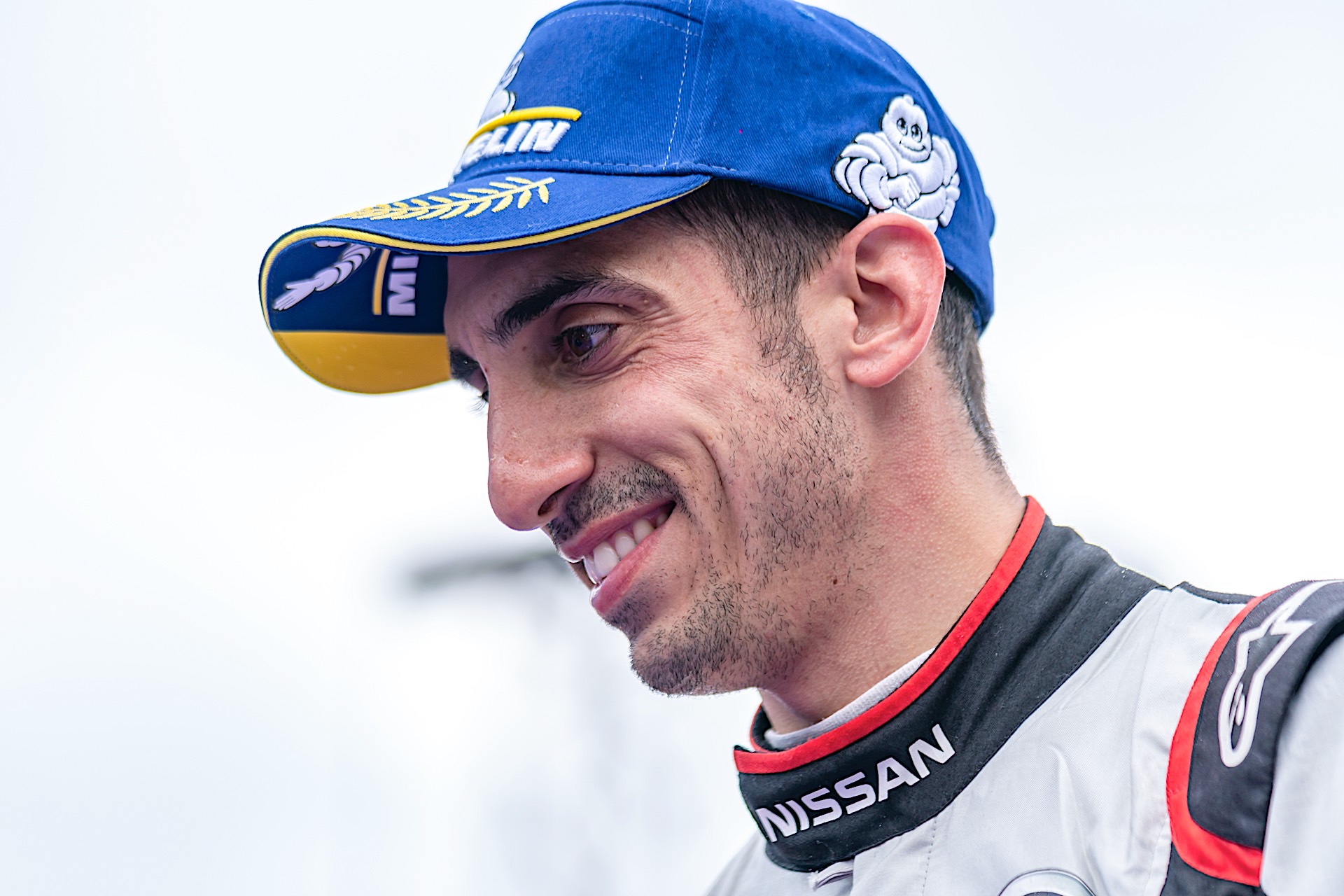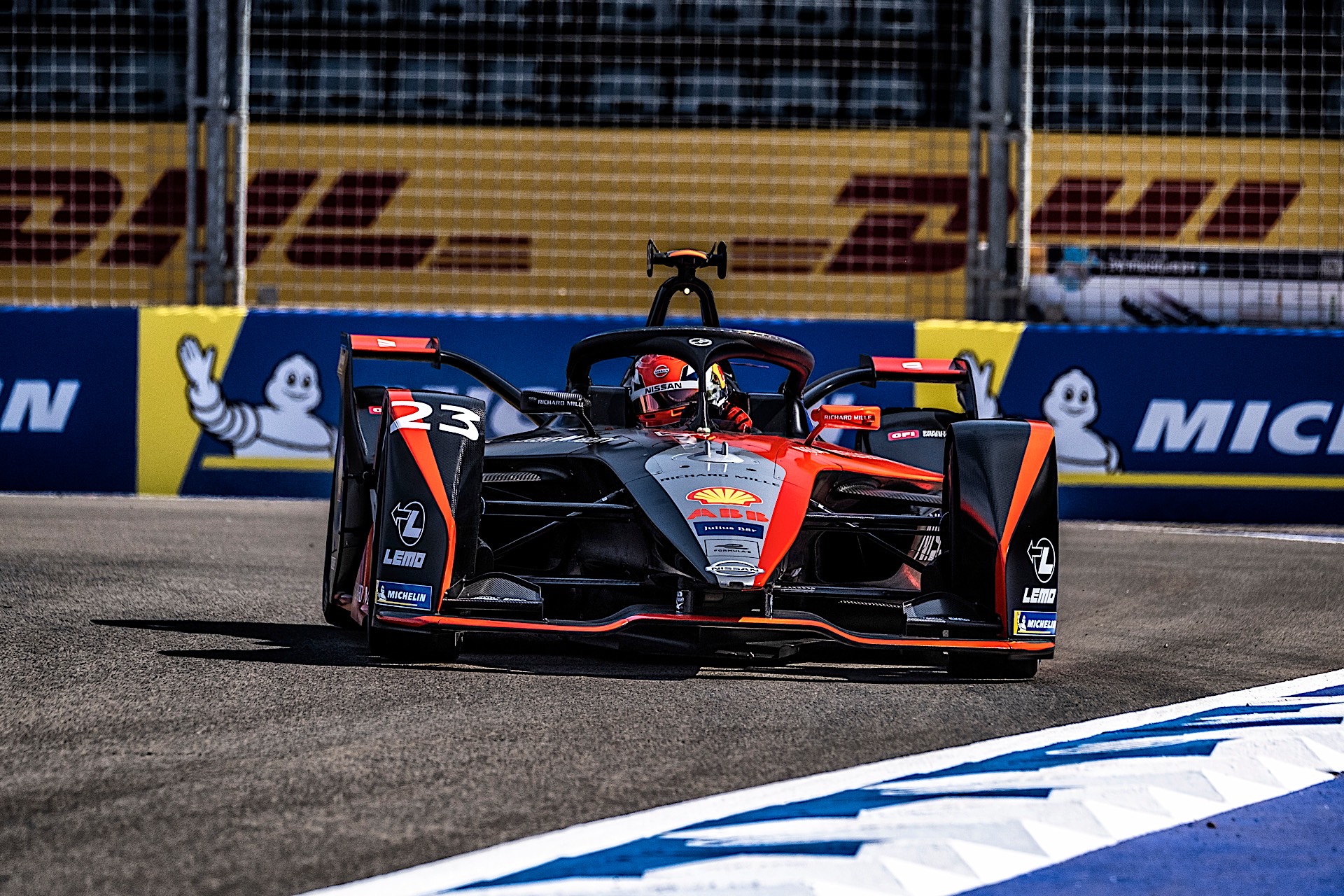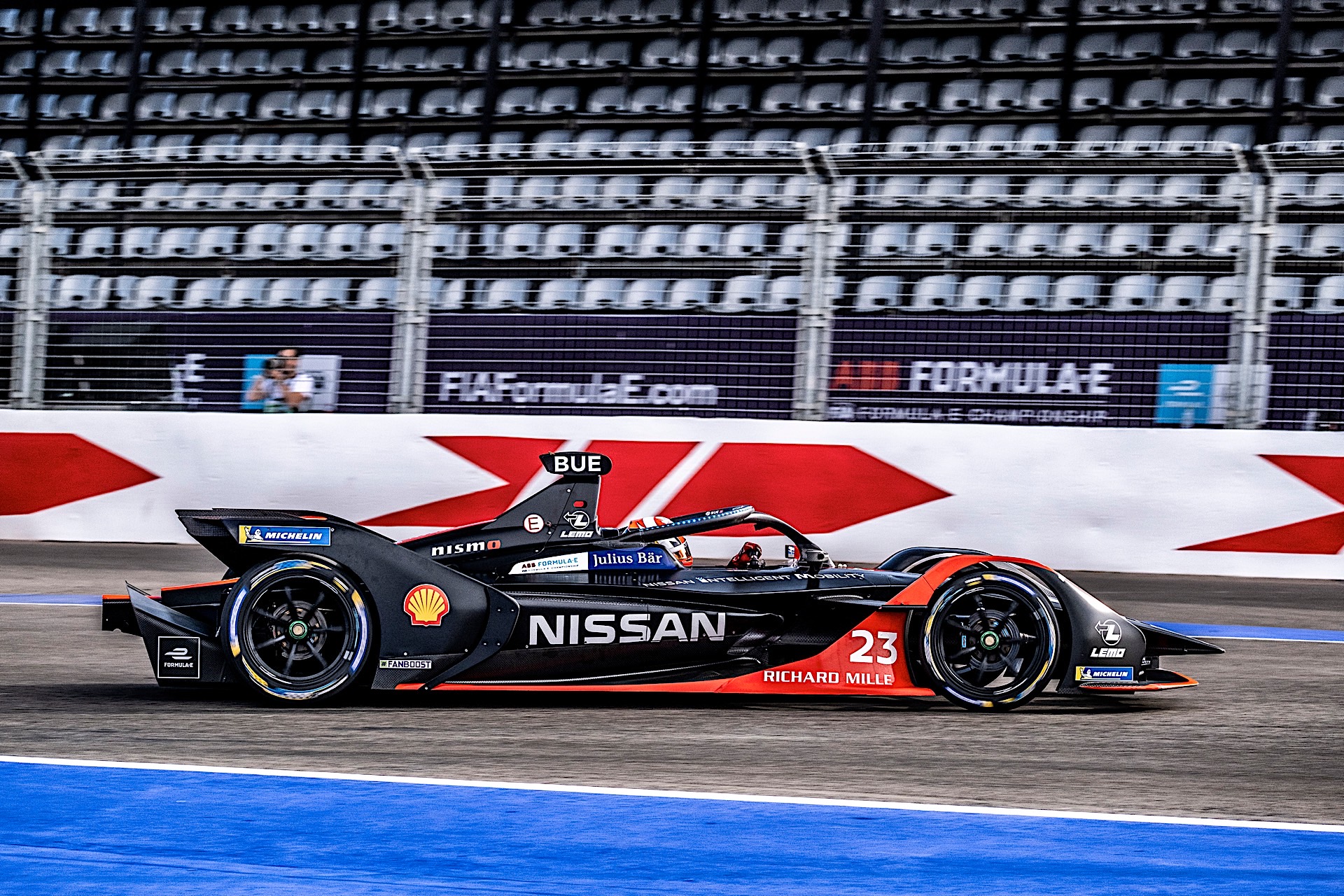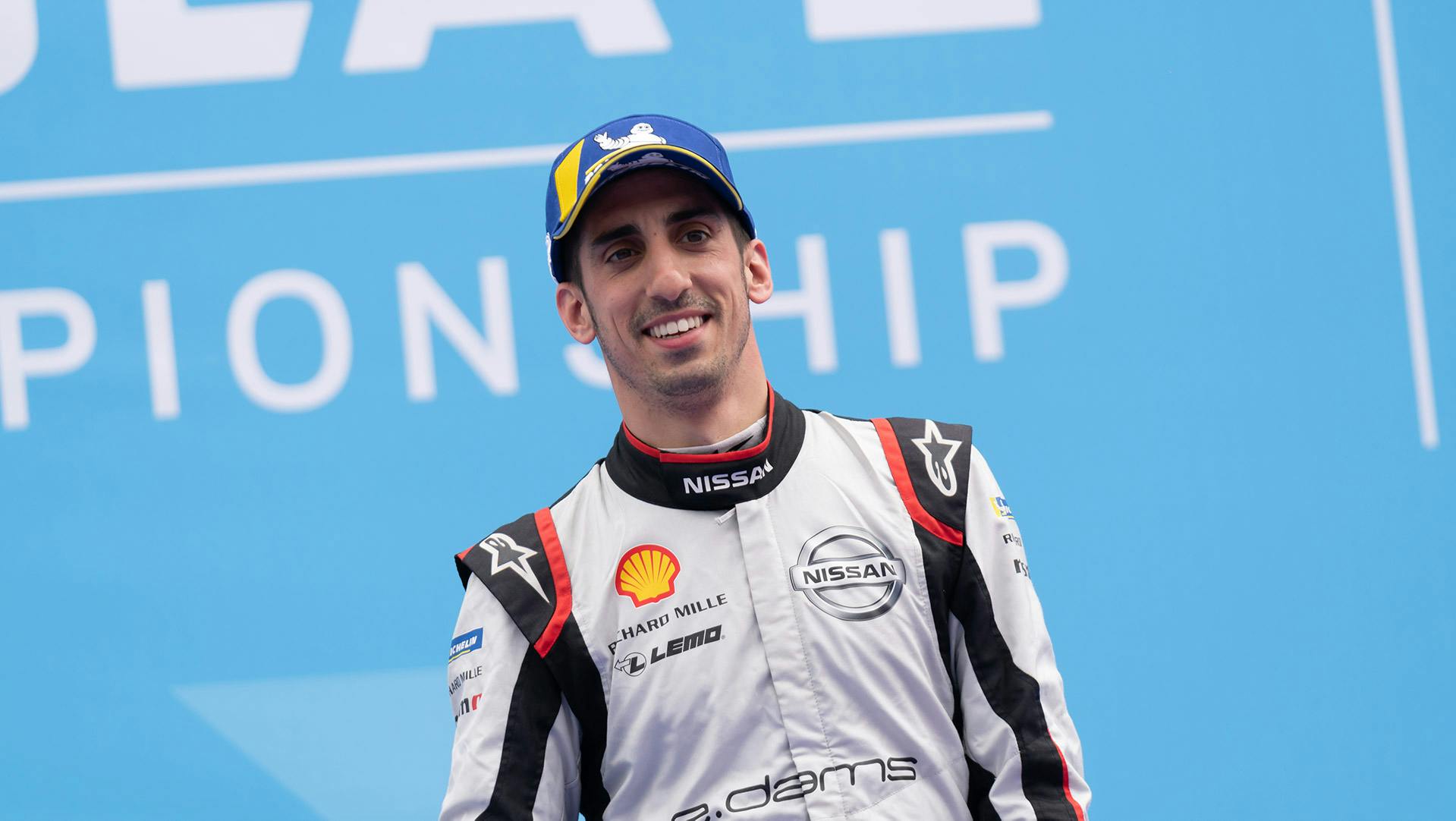Sébastien Olivier Buemi is only 32 years old, and has already had the kind of career that any racer would dream of. He’s scored points in Formula One, entered the 24 Hours of Le Mans nine times and taken three overall victories, won two FIA WEC world championships, and took the Season 2 Formula E championship crown. After six seasons of competition in Formula E, Buemi is still the winningest driver in the series with 13 victories. He’s still got plenty of competitive edge, and doesn’t show any sign of slowing down. We get it, Seb, you’re great. No need to flex quite so hard.
While many other series have been forced into austerity measures, Formula E is a rapidly growing motorsport. We were granted the opportunity to sit down with maybe the best driver in Formula E, to get a take on what the sport is like from his perspective. So much is changing, and he’s been right there in the thick of it from the beginning. Who better to ask about the state of the sport?
Credit to Seb for giving me a few minutes of his time, despite a very busy schedule. I conducted this call with the champ near the end of his day, after running all day in his Nissan e.dams IM02 Formula E race car in testing at the Circuit Ricardo Tormo in Valencia, Spain. He provided quick and informative responses to my queries. I did my best to ask questions that he’d not been asked before. I truly enjoyed the conversation, and could have gone on chatting with him for another hour if his schedule allowed. I hope you enjoy it, too.

Bradley Brownell: Formula E recently announced that it is a net-zero carbon racing series, the first of its kind. What does that kind of commitment to the environment mean to a driver in the series?
Sébastien Buemi: I think it’s a strong message. I think it gives credibility to the championship and to the fact that we are here to change the opinion on electric mobility and try to get people to understand climate change, so I think, you know, there are lots of small steps that Formula E is taking. For example, becoming an FIA World Championship from season seven onward, achieving zero carbon emission, those kinds of steps, I think, just highlight the fact that the championship is here to stay and it’s here to change people’s minds. I think it gives, again, a great amount of credibility.
BB: You are the most successful Formula E driver in the series history, having won nearly 20% of all the races run. You’ve been with the championship since the first season. Did you know from the beginning that this series would be this important?
SB: No. I was obviously hoping the championship would do well. Obviously, because when I compete in a championship, or I enter into any category, I hope it’s going well. Because you are trying to build something and you want it to go. Luckily we have been very lucky with many things, including the Dieselgate, including the political, let’s say, decisions from governments to ban normal combustion engines from 2030 onward. Even if some of the manufacturers were not necessarily convinced about electric cars at the beginning, they completely changed their mind and they entered.
So let’s say we got, other than the fact that the timing was right, it was a good product we developed here as well. It’s a combination of many, many things.
BB: With twelve different manufacturers in the series, have you seen an increase in competition from the rest of the grid?
SB: *laughs* Yeah. That’s obviously coming with the fact that there are so many manufacturers coming in. They are spending a lot of money and they have big resources, so it has raised the level of the sport massively. This is pretty clear. So, I think it’s also good in a way, because the championship is booming, we have big brands, very nice sponsors, obviously including ABB which is the main one. But, we are kind of happy, and I’m really proud to be a Nissan driver.
BB: In some of these preseason test sessions, you’re seeing the full 24 car grid separated by less than one second. How do you find an advantage on track if the competition is so tight?
SB: The advantage, you’re never going to have a big one in general, so it’s all about the details. Unfortunately, the track that we are testing at here in Valencia is not very representative. So we try to go to our program, we have the race powertrains in the car right now with the race battery, so at the same time we are trying to make sure that we don’t damage them, because we are trying to go the whole season with them.
I would say we are trying to use the time as best we can, but unfortunately the fact that we don’t test on a normal Formula E track, it’s difficult to read into the timings and the results.

BB: Some of the teams have upgraded their MGUs for season 7, but Nissan e. Dams has chosen to stick with the IM02 power unit for the start of the season. What is the rationale behind that choice?
SB: So first of all, I don’t know if you’re aware, but now we’re going to homologate the car for the next two seasons. So for season seven and season eight, you only have one homologation. Which means you have two options, either you rush to homologate it — as some and most of the teams decided to do for the start of season seven, but then obviously you keep it until the end of season eight — or you give yourself a little bit more time potentially to bring new stuff, and you homologate it for the first races in Europe, which is supposed to be in April in Rome.
So this is what we decided to do. First of all we want to be sure that what we produce is going to bring lap time. And second of all, we’ve been a little bit slowed down by the lockdowns and some of that to produce some of the parts. We got a little bit delayed, so that’s also why we have come to that decision. We did not want to rush, necessarily, and then find out that we didn’t make the right decisions.
BB: It seems like every other team has changed its driver lineup for season 7, but you and Oliver have been working together at the Nissan e. Dams team for two seasons now. Do you see that stability as an advantage?
SB: Yeah, I’ve always said that stability in the team in Formula E is very key to the success. Why? Because we only get a one-day event. We get only 15 test days that you have to share between the two drivers, and that’s it. So if you sit 20 days in the car per year, that’s more or less it. You’re not going to spend more than 20 days in the whole year in your car, so that means you don’t get much time speaking with your engineer in, let’s say, in the proper environment. You may do simulator, you may do what you want, but the proper race conditions, you don’t really experience them much.
The more stability you have, the better you understand each other. I consider that you will be more efficient. Yeah, you know, I have been working with some guys since season one and we are starting season seven, so you know, seven years.
BB: How is Nissan learning from the Formula E teams to make its electric street cars better?
SB: You know when Nissan entered Formula E, they had already a huge expertise of the electrification of road cars. I think next year is going to be the 10th anniversary of the Leaf. Initially when they joined the championship, they basically helped us, they basically allocated a few of the engineers that worked on the Leaf to help us develop our software on the race car. So it was more like road to racing, which is very unusual.
Again, obviously, we are working very much in the championship, and it’s a little bit the opposite now. We develop things, or let’s say experience knowledge, that will be transferred into the Ariya or the next future electric road cars from Nissan. It’s all about efficiency and energy management, because today on the electric road cars, that’s the core points, really.
BB: You were obviously quite familiar with electric propulsion before getting into the Formula E cockpit, you’ve raced hybrids in the WEC for a decade. What experience carried over from either of those series that have helped you be successful in Formula E?
SB: Well, I think initially, what made our strengths was my experience in the WEC, managing the fuel. So obviously fuel or energy, whatever you want to call it. When I entered Formula E we had, I would say, a lot of experience on how to manage the electric energy in general and we won lots of races by having better energy management.
And obviously others have improved and they got better, and now everyone knows the basic stuff, so you have to be more creative if you want to be able to get the edge.
BB: You won the championship in season two and have come runner-up three additional times. You also have two FIA championships in the WEC. Now that Formula E is an FIA World Championship, how much would it mean to you to add another World Championship to your trophy cabinet?
SB: Really big, you know. Obviously, as you said I finished three times second in the championship, which is not easy to accept. I missed it for one point, I missed it for a few more points, it’s never easy. I’ll try my best, and obviously if we manage to win the championship that would be incredible. I finished second in season five in our debut season with Nissan. Fourth last year, so hopefully we can do better this year.
But, we should not underestimate the competition. It’s very very hard.
BB: There are only seven drivers left in season seven who competed in season one, yourself among them, obviously. Do you think that having this history with the series is an advantage over some of the newcomers?
SB: Yeah, of course. If you are objective, most of the guys in the top five are the same guys from season one, most of them. Clearly you see that the experience is paying off. That may change in the future, but so far experience has been really important in this kind of championship, because for example, the one day event, because of the fact that you don’t know all of the tracks. All of those kinds of things obviously help, so I think it’s important to be part of it.
BB: You’ve been racing for quite a while in a bunch of different disciplines, which race car has been your favorite, and which teammate has been your favorite?
SB: I would have to say, as a kid I always dreamed of driving in Formula One, and I did for three years. As a kid I would tell you Formula One. Obviously I was very young, I was just twenty when I entered Formula One, and I feel like I’m a much better driver now, also mentally, and how to approach setbacks and issues. And I really enjoyed the growth of the championship we have here, so right now I do enjoy Formula E very very much.
In terms of teammates, I always had good relationships with my teammates. Obviously Nico Prost, I had him as a teammate for four years, and we are still very good friends. And in endurance I’ve been racing with guys for a long time, like Anthony Davidson, Kazuki Nakajima, those guys I’ve known them for eight years, so they’re good friends of mine now. And obviously Oliver Rowland, we’ve been working together since two years, and now it’s going to be our third season together, so I really enjoy working with him, obviously.
BB: You race an electric car, this year it’s named after the Nissan Ariya. Are you going to drive an Ariya? What do you drive on the street?
SB: I have a Nissan Leaf. I’m looking forward to the Ariya. It’s supposed to come in 2021, and I’ve been told I get the first one in Switzerland, so we’ll see.
BB: Be honest, if you could snap your fingers and be back in Formula One, would you do it? Would you rather drive a mid-pack F1 car or a competitive Formula E?
SB: I think a competitive Formula E. It depends obviously what kind of team you are talking about in Formula One, but it also depends at some point I want to be successful. And I enjoy winning so much that for me, I definitely would not reenter Formula One just to say that I’ve done a few more races.
BB: After such a strange 2019-20 season, how are you preparing yourself for a more normal international season kicking off at Santiago in just seven weeks?
SB: As I used to, I would say. I try to focus on what brings lap time, on what is efficient, and what is important. Hopefully that is going to pay off in Santiago. We have now a lot of experience, obviously as you said we kept the powertrain from season six. We’ve improved the software and I hope it’s going to bring laptime when we hit the track in Santiago.
Nothing different from what I used to do, to be honest.
BB: Speaking of 2020, what did you learn from the adversity of this year that will help you become an even better driver in future seasons?
SB: I think we’ve been kind of lucky, to be honest with the lockdown, because we were quite a bit behind the competition in terms of energy management and the software. Season five we had the twin-motor that, as you know, got banned. We had invested lots of energy and time and money into that twin motor that we couldn’t keep. So once we developed a single motor, and obviously did what the others have done, we were on the back foot and we were late. The lockdown has helped us improve the software massively, and that’s why I think we finished quite strongly in Berlin.
Now we need to continue and start season seven as we finished season six.

So there you have it, straight from the mouth of a champion. I have long been a proponent of Formula E, but even I was a little bit surprised to hear the confident and mature way with which Buemi said he would rather stay in a competitive Formula E car than reenter Formula One. Of course, if he’d not already had three years of experience in that arena, perhaps his answer would have been different.
The thing that interests me the most, perhaps, is that Buemi has pretty much defined his career by driving race cars that are either full electric or hybrid, and winning championships with them. Between his work with the Toyota LMP1 cars and the e.dams Formula E team (both Renault and Nissan powered), Buemi has certainly got more electrified experience than almost anyone on the planet. He’s truly got his finger on the EV pulse.

